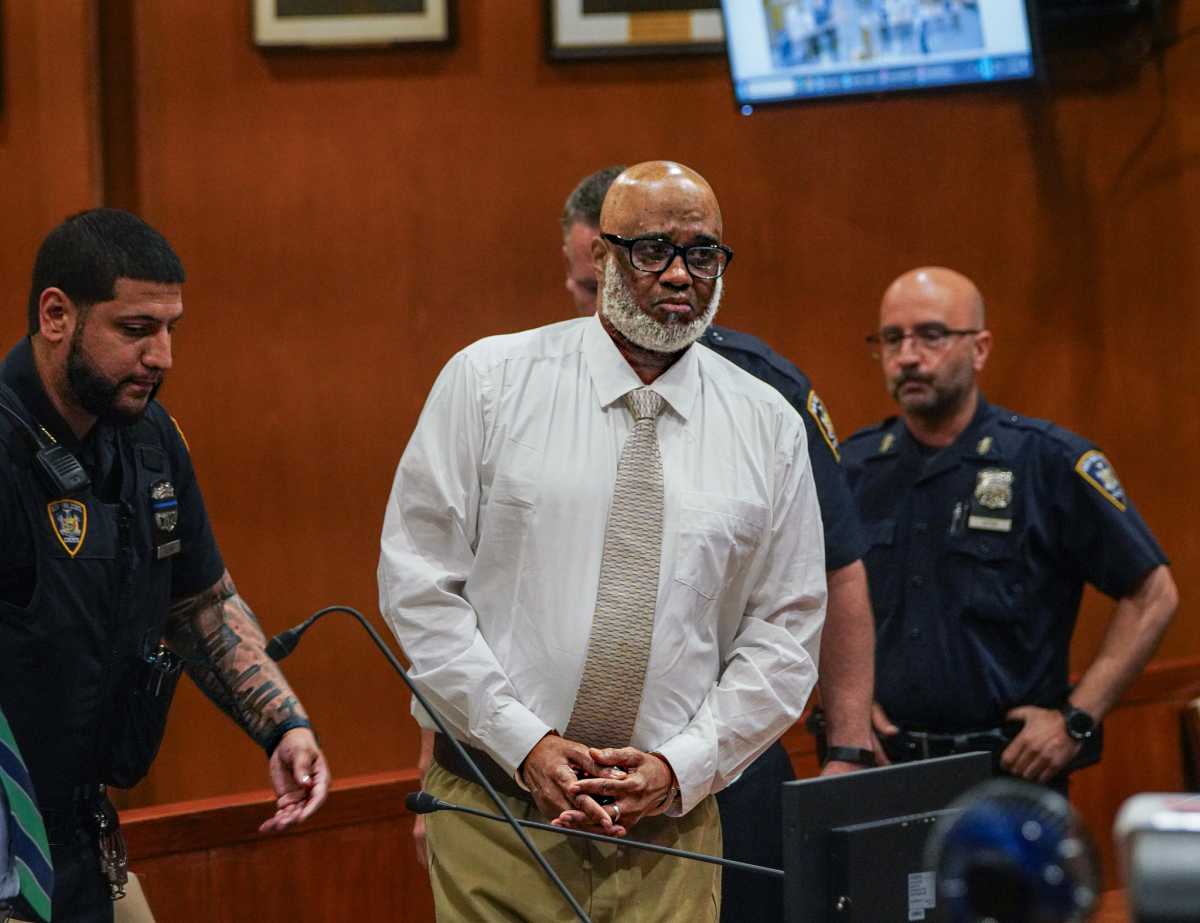With the return of flu season, New York Hospital Queens (NYHQ) recently held a briefing about the H1N1 virus, also known as Swine Flu.
“Now that the fall season is upon us and we are braced for a possible or inevitable resurgence of the virus, I think it’s only right that this kind of seminar take place,” Councilmember John Liu said.
“H1N1 is serious but it doesn’t mean we have to stop everything…It doesn’t have to be that much of a disruption,” he continued,
Dr. Stephen Rimar, the Senior Vice President and Chief Medical Officer at NYHQ, said that they are anticipating a bad flu season this year. He said that, when a lot of people get sick, there ends up being many sick staff at the hospital, and that the worst case scenario is there are not enough people to take care of all the sick individuals.
In order to prepare for the flu season, Rimar said that the hospital is focusing on four main areas. They are compliance with the state’s requirement that all health care providers get vaccinated, surge planning for sudden influxes of patients, communication and an emergency command center.
Dr. James Rahal, NYHQ’s Director of the Infectious Disease Section, explained that the virus is referred to as “novel H1N1,” meaning that it is new. He said that although it is made up for different compounds from the previous strain, it is similar to the one they are “accustomed” to seeing.
“Most of the studies have shown that this is not a terribly serious infection when it occurs,” Rahal said, adding that it could change and should not be taken lightly.
Rahal went on to explain why vaccines are necessary
“We do vaccines because the vaccine mimics the presence of the virus and makes the body and the immune system think the virus is there and it’s going to invade and attack us,” he said. Rahal said that this fools the body into creating antibodies, so that when the real virus is present it is prevented from causing disease – because the antibodies are already there.
Also speaking during the briefing was Dr. Teeb Al-Samarrai, the Epidemic Intelligence Services Officer in the Division of Epidemiology for the New York City Department of Health & Mental Hygiene.
She explained that the focuses of the health department’s plan is to track influenza, strategies to prevent H1N1 from spreading, school policies, managing it in the community and promoting communication.
“We expect both seasonal influenza and the novel H1N1 will circulate,” Teeb said of what to expect this fall and winter. However, she said the health department does not expect high rates of serious illness.
Dr. Jose Villarin, the Associate Chairman of Pediatrics and Director of the Teresa Lang Children’s Ambulatory Center at NYHQ, spoke about the importance of children and pregnant women getting vaccinated. He also said that anyone who takes care of children less than six months of age should also get the vaccination.
Some of the measures that the speakers said should be taken are covering your mouth when coughing and washing hands frequently.
“If you are sick, do not go to the emergency room. If you are sick, do not go to your doctor,” said Dr. Diane Sixsmith, the Chairman of Emergency Medicine at NYHQ. “If you are sick, stay at home.”
Sixsmith noted that patients will get better on their own and that one of the strategies for preventing a bigger outbreak is containment. However, should a flu outbreak not be as mild, she said there is a plan in place to deal with it.
“Rest assured if you need us we’ll be here,” Sixsmith said.
More information and updates about the flu can be found at www.nyhq.org or www.nyc.gov.flu. New Yorkers can also call 3-1-1 or NYHQ’s flu hotline at 718-670-2121.
Read about how schools are preparing for the outbreak by clicking here
Read about how work places are preparing for protection by clicking here































